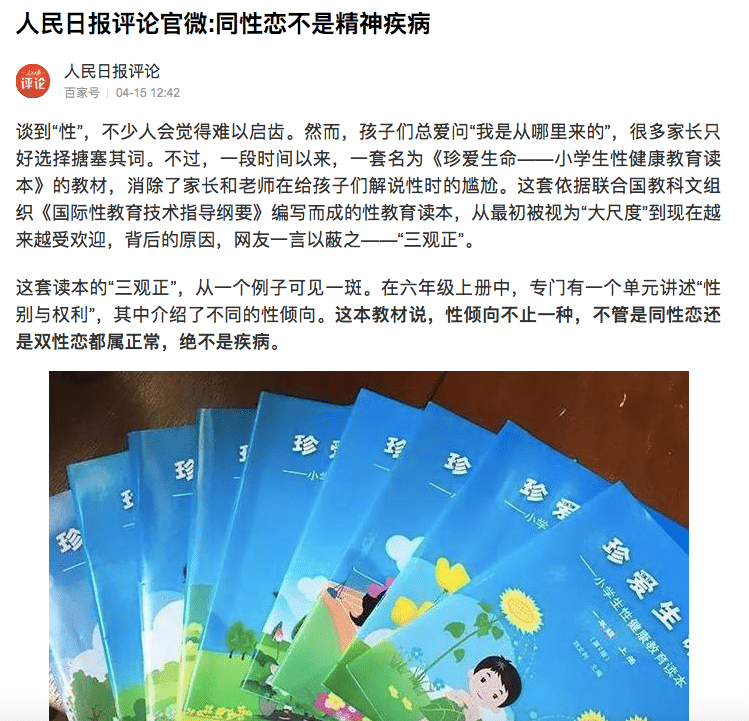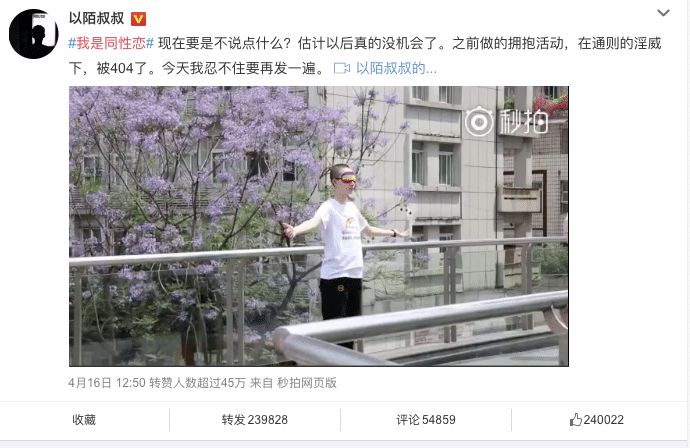Weibo, one of the largest social media platform in China, released a notice on April 13 saying that content such as comics and videos related to “prostitution, violence and homosexuality” would be cancelled and banned. The notice quickly provoked an outcry, and the issue simmered for the next few days, with tens of thousands of Weibo users clicking on the #Iamgay hashtag to express their support for the LGBT community and protest the ban. Within two days, the hashtag vanished from Weibo after getting 270 million clicks.
Shang Wenjie, a well-known female singer, responded strongly against Weibo’s action and tweeted an editorial entitled “Homosexuality is not a mental illness” published by the People’s Daily, the official newspaper of the Communist Party.

Alongside the reaction from celebrities such as Shang, members of the LGBT+ communities in China also responded in various ways. Many Weibo users posted photos or videos under the hashtag #Iamgay. For example, a user named Yimoshushu posted a video of gay people wearing T-shirts saying “I am a homosexual” standing with open arms, waiting for passers-by to embrace them.

Sixty-six hours after the notice was released, Weibo clarified that their clean-up would no longer target gay content and would focus only on pornographic and violent material. The announcement ended with the words “thank you for the discussion and suggestions”. The platform’s reversal of its decision can be seen as a step forward for LGBT rights in China.



